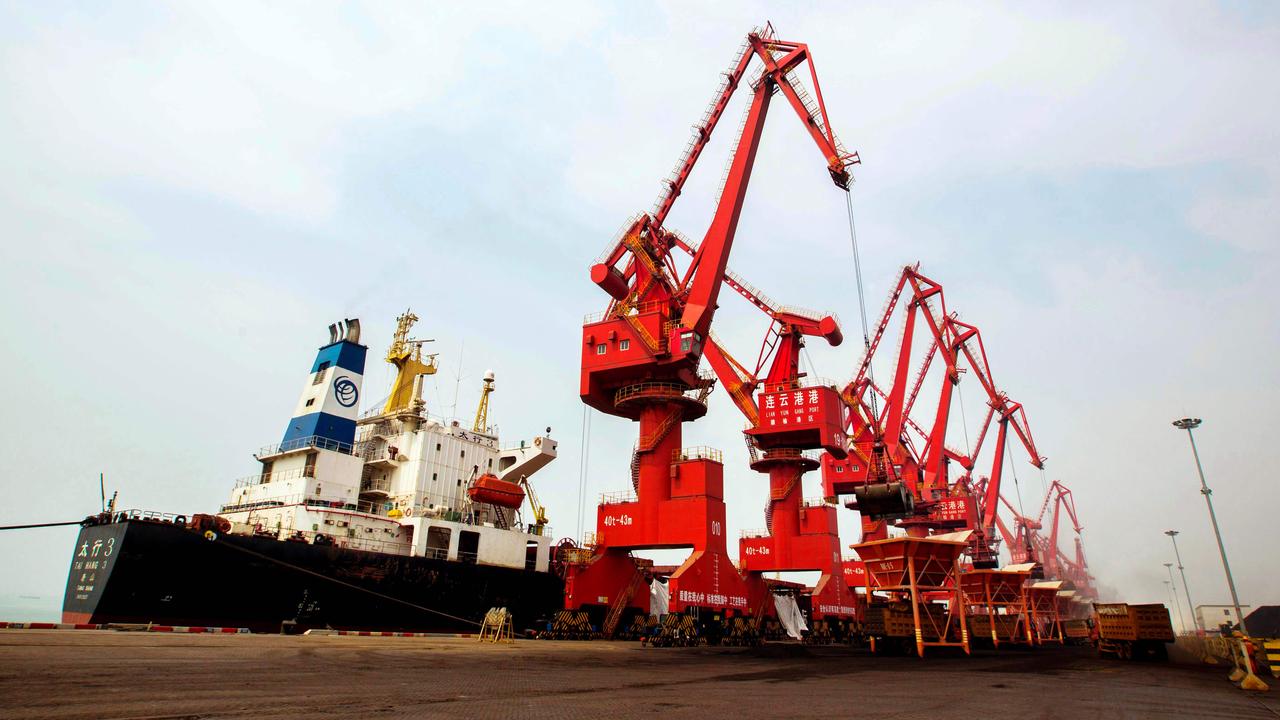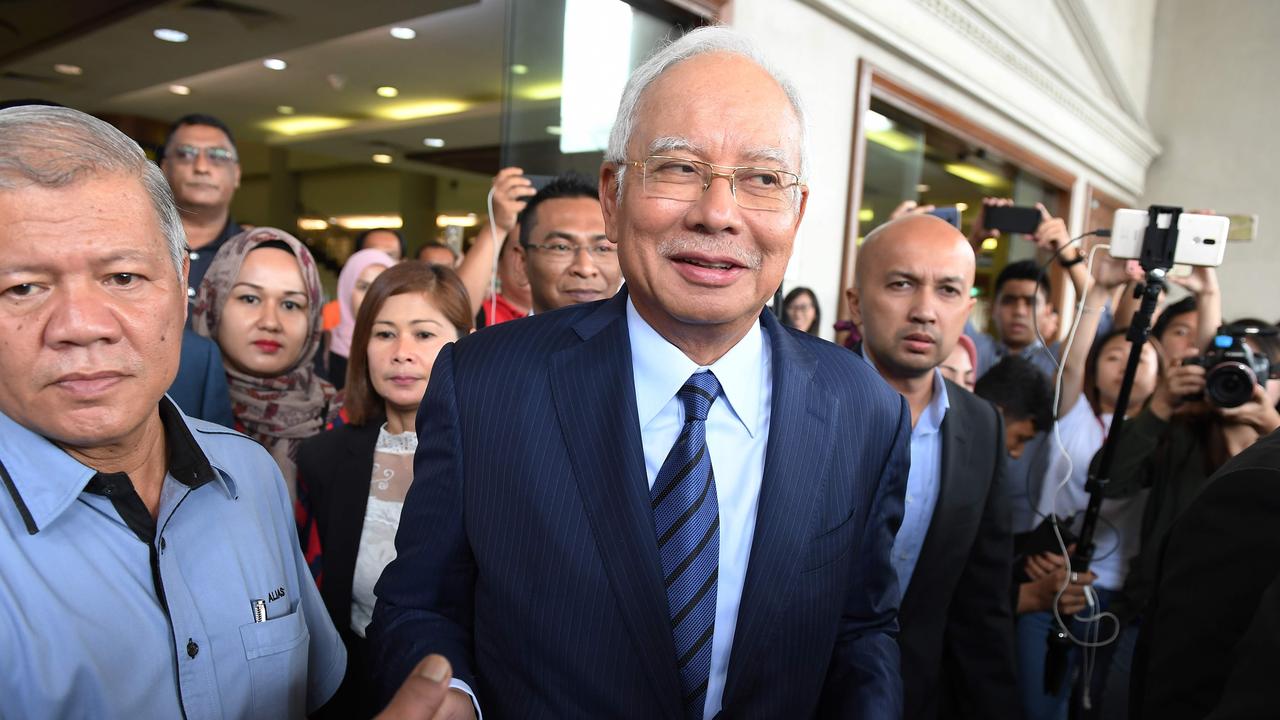Belt and Road criticised as being overambitious
No wonder some overexcited China-watchers speculated about a power shift when Xi Jinping ‘disappeared’ for a few days.
No wonder some overexcited China-watchers speculated when Xi Jinping “disappeared” for a few days that some dramatic power shift was under way — or that his previously unsurpassed power within the party-state was waning.
This happened as the international environment was overwrought, with Donald Trump a leading factor but far from the only one.
Influential people in the world’s leading powers have been jumping at shadows — though the broad populations appear less excitable. Polling for the Chicago Council on Global Affairs, for instance, shows US attitudes towards China almost unchanged over 40 years, with people split evenly between whether the country is rival or partner.
American consumers will be paying more for many products as a result of the trade war with China and other countries, while some farmers will struggle to find new markets for their products. And most of east Asia will suffer, since its components are used in many of the higher-tech goods assembled in China before export.
In China, the US remains, broadly, more envied than hated — and academics are willing to identify cunning behind what counterparts in the West view as idiocy on the part of Trump.
For instance, some in China view his meeting with Vladimir Putin as a reverse tactic of Richard Nixon’s in 1972, when he and Henry Kissinger allied with China to isolate the Soviet Union. Now, they are saying, Trump seeks to ally with Russia to isolate China, the main threat.
The Chinese leadership is only anxious about the fate of exports insofar as jobs are threatened.
Among leaders, both rhetoric and behaviour — including on the economic front, as manifest in the trade wars, and in the growing controversies over Xi’s Belt & Road Initiative (BRI) — have become more excitable everywhere in this climate.
Besides making their countries great again, both Trump and Xi want a new world order — and appear to be making a fair fist of achieving it, though success for either may well not be ideal for middle powers like Australia.
Domestically, Xi’s rule has over the last year moved beyond conditionality.
But he still needs to be watchful as to shifts in perception and thus in confidence within key sectors of China’s population, for whom he has obtained the online tools to survey universally and constantly.
Such a capacity to look inside the lives of the governed in China has not been reflected in a greater transparency at the top. Indeed, we know less about how decisions are reached in China and by whom — except for Xi himself, at the apex of everything — than since before the revolution.
Xi had been cited on the front pages of People’s Daily for months until suddenly being “dropped” a couple of times last month. Did that mean a battle was under way over the cultivation of a Xi identity cult within the secretive Zhongnanhai compound from which China is governed?
Almost certainly not. Xi, obviously feeling under no threat, then travelled as planned to a Johannesburg summit of leaders of the Brazil-Russia-India-China-South Africa grouping, visiting other African states en route to heighten their appetite for Belt & Road infrastructure.
As usual, this leaves the hard-pressed officials of China’s state banks and other institutions to tie up the details, including the challenge of ensuring such deals come with plausible business plans, including credible repayment programs.
Belt & Road has emerged as an important element in China’s promotion of continuing rapid growth in order to reach Xi’s target of doubling the economy in the decade to 2020, handily using some of the excess capacity that industry has built during the post-GFC debt leveraging spree.
As it has grown into a global tactic it has lost its original geographic vision of connecting east Asia with Europe, with even Latin American and Caribbean countries being invited to join and a new “Ice Silk Road” devised to incorporate Russia.
Belt & Road is attracting growing criticism within China for being overambitious. China Policy cites Zheng Yongnian, chairman of the South China University of Technology’s Institute of Public Policy, as expressing concern that it has been oversold as a grand strategy, that its ideological framing had aroused suspicion of intentions to become a global hegemon, and that it risked becoming debt-ridden.
Xi’s ambitions mark a contrast with the old era of patient reform-and-opening that was launched 40 years ago by Deng Xiaoping. It is interesting to review the successes achieved by Chinese people following the Deng opening.
Under Xi, the market has been allowed some room to shift the yuan — which has, of course, been sliding against the US dollar — and to drive the Shanghai stockmarket down too.
But Xi can’t resist intervening to ensure his somewhat contradictory goals — doubling the economy and tackling debt — are met.
The state council or cabinet said a few days ago that fiscal policy would become “more proactive”, cutting taxes and encouraging local governments to issue more bonds to back infrastructure spending — which would make more sense if it could be directed towards needed facilities such as parking lots and retirement homes, a “policy insider” told Reuters, rather than towards mega-projects.
Xi’s chief economic adviser, Vice Premier Liu He, is now concentrating on such domestic issues rather than wasting time trying to change American policy on trade, it seems.
So there is much for China’s leaders to ponder as they prepare for their annual trip to the seaside at Beidaihe to finalise plans for the year ahead.




To join the conversation, please log in. Don't have an account? Register
Join the conversation, you are commenting as Logout